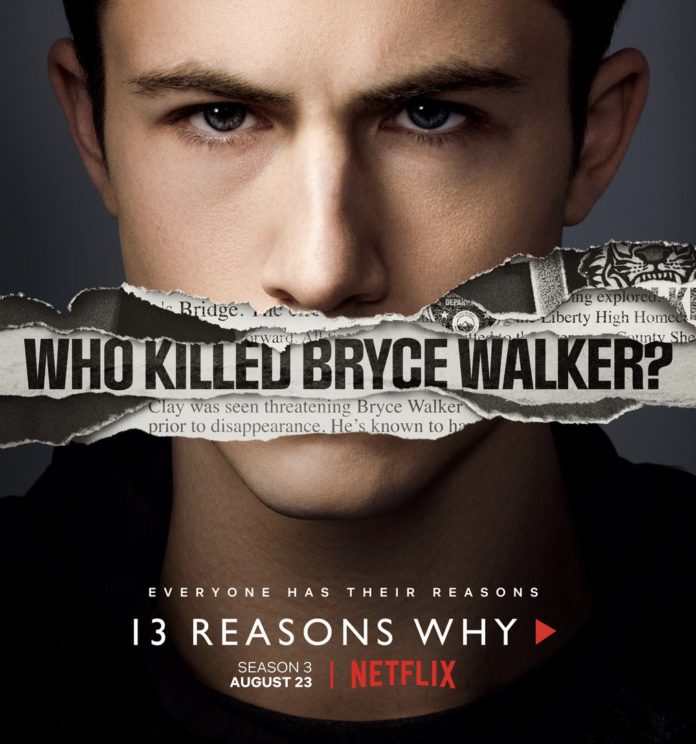By DJ Ramirez | Sports Editor
The best stories are meant to make you uncomfortable. They’re meant to stir something inside you. They’re meant to start a conversation.
From the very beginning of its controversial existence, Netflix’s “Thirteen Reasons Why” has attempted to do just that. Whether they have actually succeeded in starting the conversation they were aiming for after the release of its third season still remains to be proven.
Like in previous seasons, the show attempts to bring to light difficult topics such as sexual abuse, abortion, family separation due to legal status, drug abuse, mental health and toxic masculinity to name a couple.
If you have seen the trailers and the ads, you probably already know that season three deals with the murder of the show’s main antagonist Bryce Walker (Justin Prentice) and the core group’s attempt to find out who committed the crime and if that who happens to be one of their own.
One of the main plot lines to this season doesn’t deal much with Bryce Walker’s murder at all, but his realization to the gravity of his past actions and his pursuit of finding change within himself. While in the past Bryce may have come across as a one-dimensional antagonist doing what he wanted and taking what he wanted simply because he had the power to do so, this season brings up the question of a person’s ability to change and search for redemption.
According to Joy Gorman Wettels, executive producer of “Thirteen Reasons Why,” the show is not trying to excuse any of the awful things that Bryce did, but that they are trying to show that change is possible within the toxic culture that we sometimes live in.
“Does Bryce deserve a chance to apologize? I think everyone deserves a chance to apologize,” Gorman Wettels said in “Beyond the Reasons,” also on Netflix. “No perpetrator should expect that apology’s going to be accepted … but I like to believe that people can change.”
Justin Prentice’s nuanced portrayal of Bryce in his quest to right the irredeemable wrongs he committed does inspire a feeling of empathy, or at least sympathy (and no they are not the same thing). You might almost feel bad for him when he meets his end because now you’ll never know if it would have been possible for him to actually change. But that’s the tragedy, right?
In an attempt for the writers to humanize the character of Bryce, Ani Achola was introduced as season three’s not so reliable narrator. Portrayed by British actress Grace Saif, Ani’s inclusion into the story line may have been confusing at first, but necessary to show Bryce under a new light. Considering what he put the majority of the other characters through, bringing Ani into the mix may have looked like their only choice.
However, Ani’s relationships with Clay Jensen (Dylan Minette) and Bryce are a bit puzzling and while she may have been used as a device to provide some outside perspective, her unreliability made it difficult to gauge what that perspective actually was.
Despite the brilliant performances by the cast and the attempt to bring to light such sensitive subjects, the show and the season are far from perfect. The characters continue to make terrible decisions for themselves and for each other without thinking ahead to the consequences, which leaves you wondering if all their work was for nothing.
It was definitely an easier season to sit through than the first two, and it certainly has important elements of redemption that, in the end, make it worth the watch.






